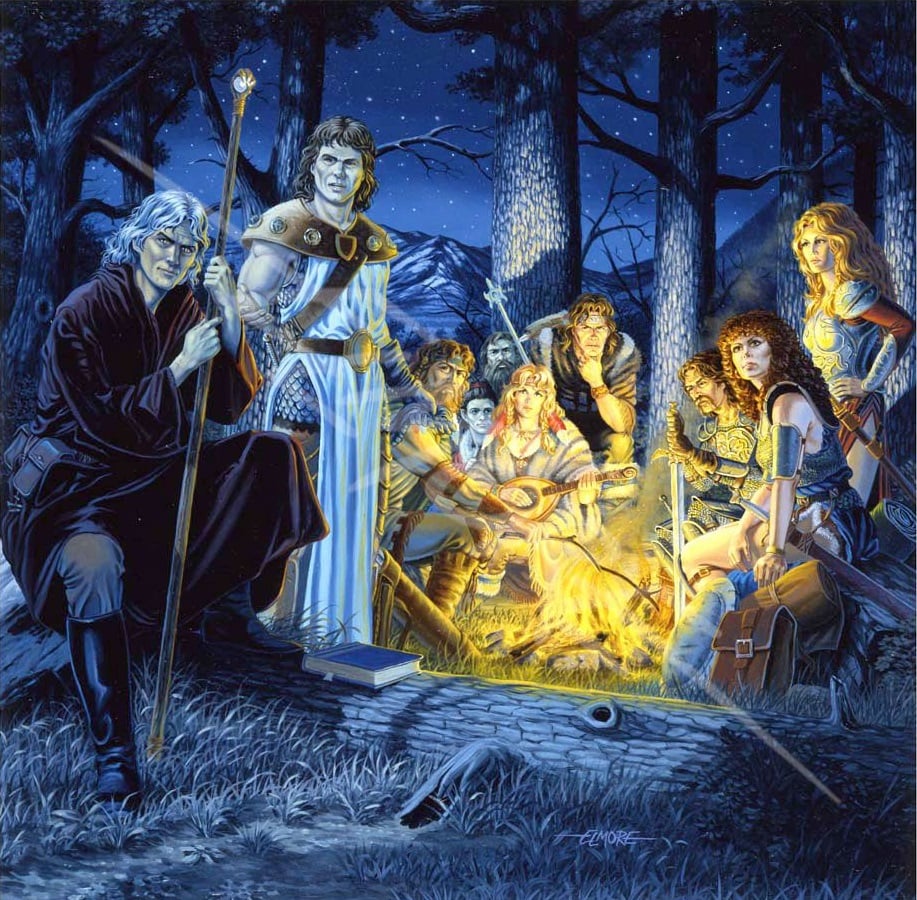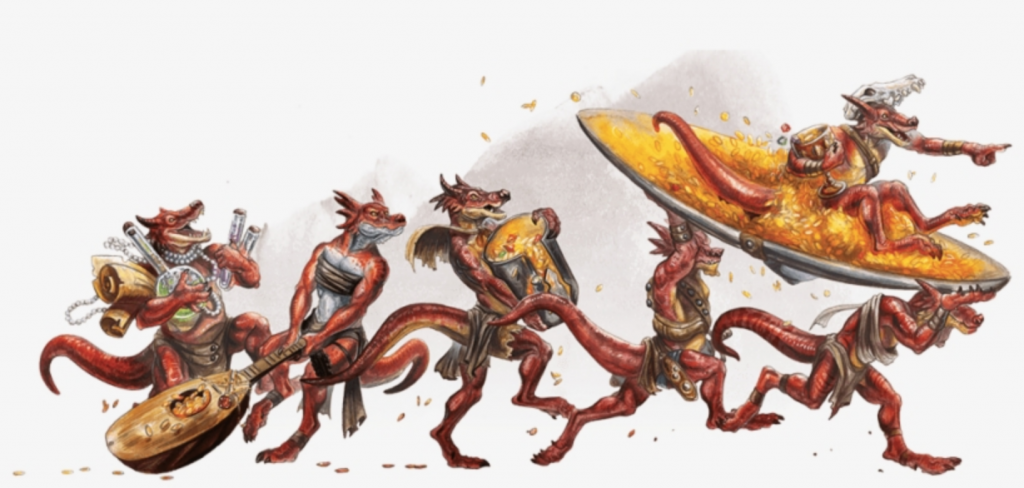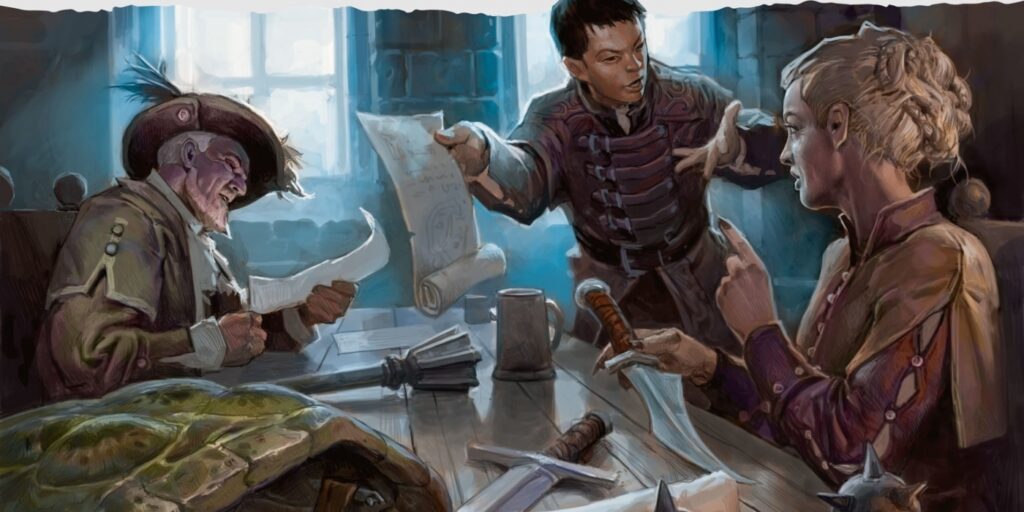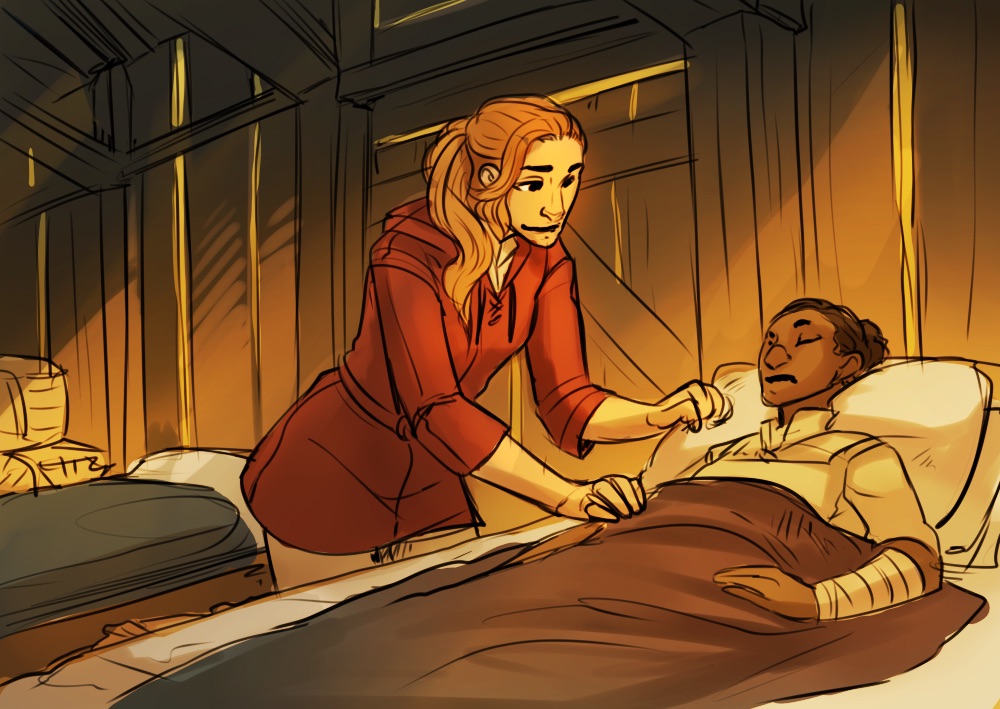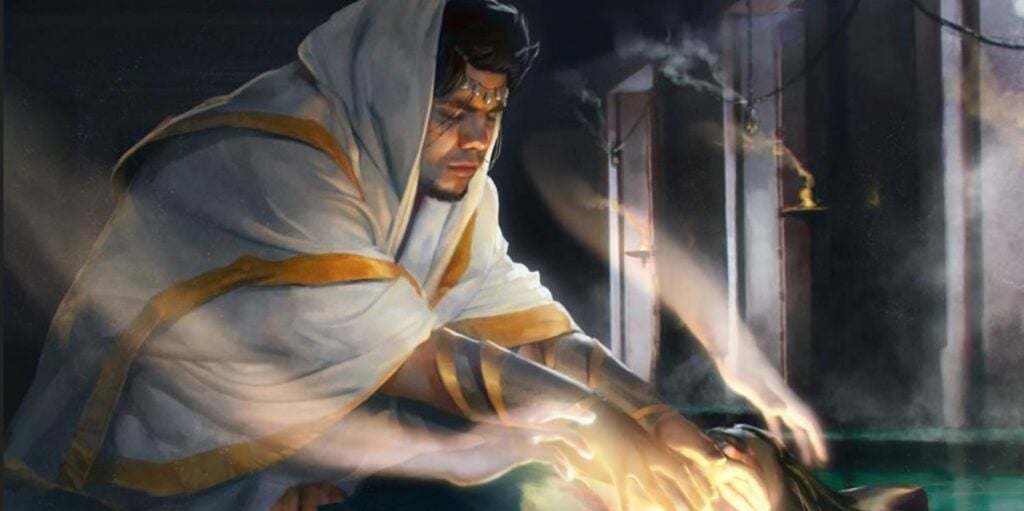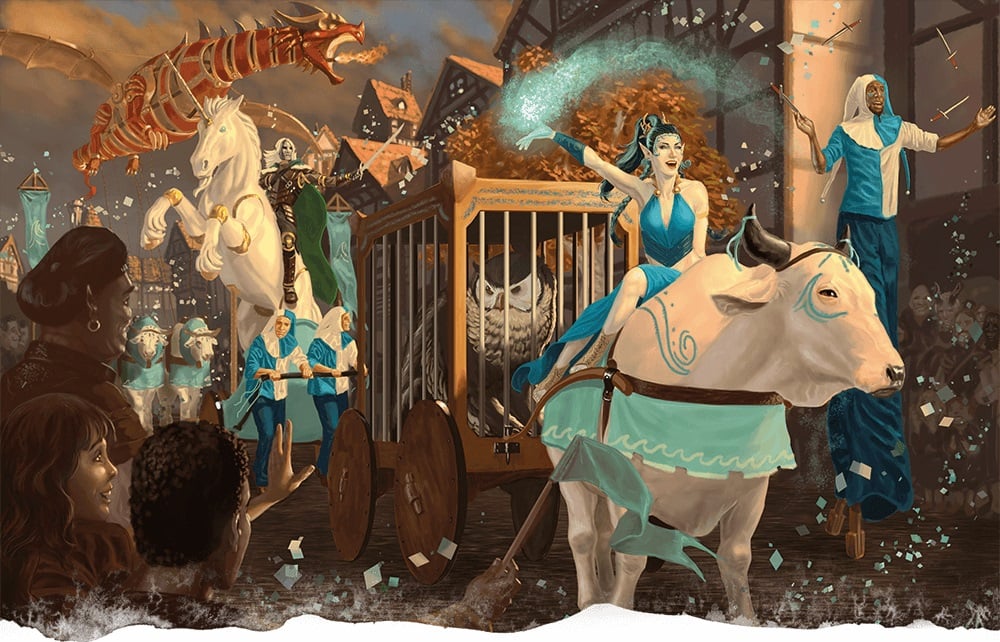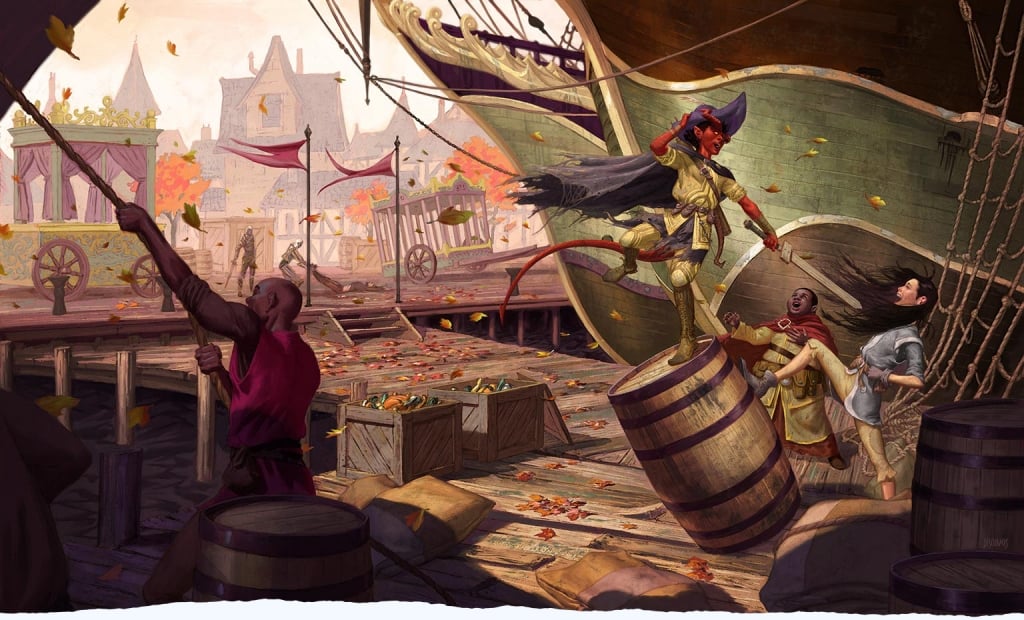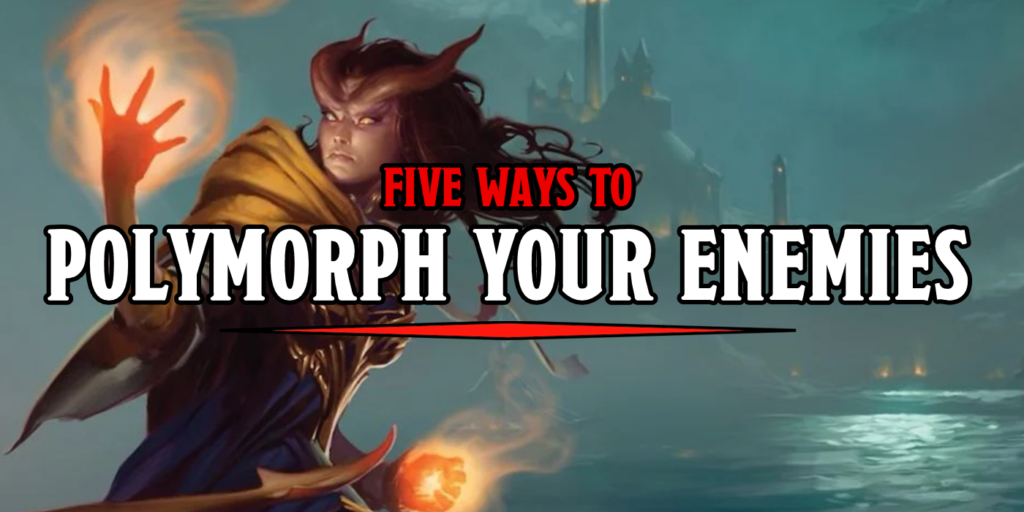D&D: Making a Campaign Your Players Will Never Forget
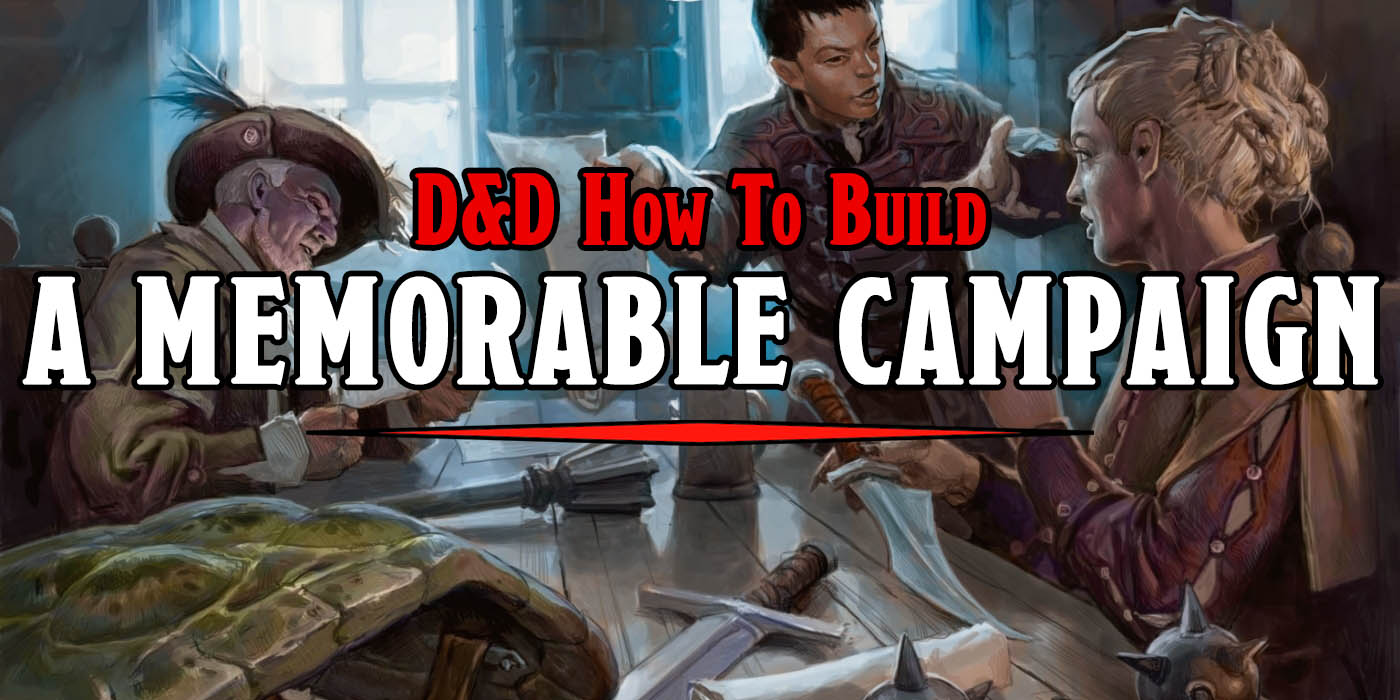
Whether you’re in it for the long haul or just playing for a couple of weeks, here’s how to make your next campaign pop.
“Campaign” takes on a whole new meaning in D&D. It’s a series of extended adventures. Much like a military or political campaign, there are often tears. Perhaps the word comes from D&D’s origins as an offshoot of wargaming. Going “on campaign” might reflect a series of extended combats.
Or maybe it comes from the string of interconnected operations meant to carry out a larger goal. Like with an advertising or election campaign. Whatever the origins, campaign play is a big part of any tabletop roleplaying game. If you’re going to sit down with your friends for a game for more than a few sessions, here are some things you can do to make it memorable.
To start with, one of the best things you can do is tell the story that could only exist with the players at the table—GM included. Let me unpack this one a little. We’ve all heard the standard “RPGs as collaborative storytelling” line before. We have some rough ideas as to what that means. Typically it’s: figure out the tone and genre of the story you want to go for.
There’s a lot of talk of setting the dials of a game, right? You want the ratio of combat vs. intrigue vs. shopping. But we can go even deeper. We can tell stories that just wouldn’t be the same if the characters involved were anyone else.
It’s a lofty ideal, to be sure. Not everyone thinks they can run a game custom-tailored to the PCs. But, honestly, it’s not as hard as it sounds. It takes work. And it’s a different sort of skillset than planning out encounters or coming up with cool villains. But it doesn’t take as much as you think to tailor the game specifically to your players. If you can pull it off, you’re well on your way to making your game feel like it has a life all its own.
At its simplest, it’s all about making character choices matter–and not just the ones they make during the game, but the ones they make before you even roll your first initiative against a goblin ambush.
When you sit down to work on your campaign, begin with the characters. Not to say that you can’t have some long-reaching goal or design some arch-villain (though your game probably doesn’t need one, but that’s another story), but the real work of campaign planning begins when you know who is in your game and what they’re playing. Until then, all you have is what you as the GM are bringing to the table. But once you know who the characters in your party are, you can start making the campaign around them.
It sounds like extra work, I know, but it’ll save you time and effort in the long run, because the players are doing the hard work for you. They’re already giving you so much to work with just through their character choices. Is there a cleric of a moon goddess in your party? Already you know a few levers to pull in your world.
Anytime you need a temple or themes of divinity or whatever, you can make their moon goddess run through the spine of your campaign. You don’t have to bother inventing a whole other organization and figure out how you’ll get the characters wrapped up in their machinations–your cleric has already done that work for you. All you have to do is use it.
But even if your players don’t have something as distinct as a Cleric or Paladin that come with a built-in “USE ME” sign on their backs, you can still work who the characters are into your campaign planning. If you know one of your fighters is a former member of a mercenary band, you have a go-to connection to use any time you need guards or minions or extra muscle around a character who might have cause to hire mercenaries. All you have to do is take a few notes and bring in little touches of who the characters are.
Better still, ask the players how they see their characters fitting into the world. If the player of the fighter decides she’s a former mercenary, ask her who the other people in her band are–you might have a sense of the campaign’s starting location, but contributions from the players can help you set the stage to grab them already. You don’t have to waste sessions trying to get the adventurers to go on an adventure when you get them to tell you what they want.
Not to say that everything they do has to have world-shaking implications, or be about exactly what the players say they want. That’d feel contrived. But there’s a balance to be struck between “give me your characters and I’ll tell you what happens” and having the players help build out the world. You’re sharing the narrative workload with them, and giving the players a little more agency.
But what if you’re playing a pre-written adventure like Waterdeep: Dragon Heist or Baldur’s Gate: Descent into Avernus? Good news, you can still do all of this. It just requires a little bit of upfront discussion. Talk to the players about some of the elements in the adventure and see what feels like a good fit. If you’ve done the job of reading the adventure to get a sense of how it works (which you’ve done, right GMs?) you can say “well there are organizations like this–do any of these fit what you have in mind for the character?”
This does a few things right away. It makes the game much more personal. Even if you’re playing in an adventure module like Waterdeep: Dragon Heist or Baldur’s Gate: Descent into Avernus, you can still personalize the world, and it’s not a ton of extra work for you, you’re sharing that load with the players. The work of being a good GM comes from trying to figure out the tone and themes of the game. If someone is being a little more lighthearted and Xena Warrior Princess-y when you’re trying to run a more grounded fantasy game, that’s one thing–but even in the most serious places you can help balance things out.
Using a player’s backstory element, or character class choice, or whatever to have a spotlight moment in the story is such a good feeling. It tells them you’re listening to what they say, and that does a lot to build trust. It makes players feel a little more confident to make bold choices/take risks in their game, and that’s when things get awesome. That’s when the players stop feeling like they have to mine for levers in the rules that they can use as “gotcha the rules say I can do this” moments to try and take some narrative control, you’ve already invited them to do that.
Unfortunately, there’s no easy guide to say “hey swap in this god for this one” when looking to adapt your game. It’s a little more intimate work that means communicating clearly with your group and making notes about who they are and what their characters want. You might have to ask more questions than you’re used to or get your players to talk a little more, but by getting them to open up about what they want, you’re making them confirm their own thoughts and lock them down into something more concrete. And by deciding ‘alright this is how the game should feel’ which is a part of pretty much any session 0 anyway, you’re encouraging them to think with that in mind.
Oftentimes, players will give you more to get their characters into trouble with than you would have thought of on your own. It’s about making the PCs important, not necessarily to the world, but to the story. To go back to the Cleric example, you don’t necessarily have to make the moon goddess the central figure to oppose some world-shaking big bad, or have trouble in the Temple of the Moon every game–but when the fact that it’s a relic of the Moon goddess that triggers something in the world, or whenever the Temple of the Moon has a task for the cleric, you’re making your game unique. It wouldn’t exist if you didn’t have that particular player playing that particular cleric of the moon. And that’s the magic sauce we’re all looking for.
And you can do it, even if you’re running through Waterdeep: Dragon Heist for the seventh time.
Happy adventuring!

